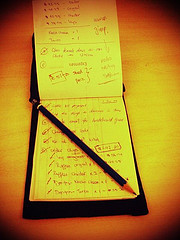 I wasn’t the coolest of kids when I was in middle school. I was on the math team. At the age of 13 my feet were larger than my 6′ 2″ tall father’s, although I was only 5′ 7″ at the time. AND to complete the picture, I had a mullet.
I wasn’t the coolest of kids when I was in middle school. I was on the math team. At the age of 13 my feet were larger than my 6′ 2″ tall father’s, although I was only 5′ 7″ at the time. AND to complete the picture, I had a mullet.
It wasn’t pretty.
I didn’t think my life was horrible or that I was a total loser. I wasn’t a complete loner. But I knew my place.
It was fine for me to be my quirky, funny self around my fellow nerds (back when being a nerd wasn’t cool like it is today). At the same time, when I was around anyone of a “higher” social status, I just kept my head down.
I felt that if I opened my mouth everyone would look at me and think, “I can’t believe what a waste of time he is, why is he hanging around us? Could he just leave?!”
This internal dialog persisted well into my twenties.
I can still remember one particular moment whilst I was at university. I was on campus early for training for a job I had in the resident halls. During a long afternoon break I sat with two guys I worked with who were older than me (and both former military). Their conversation lasted for almost two hours and I barely contributed a word.
I felt out of place…or more likely I “knew” my place, which was well below theirs.
As I think back to that moment, I can still imagine what it felt like to be a little kid who is tagging along with the big kids and hoping they wouldn’t notice that I was there. In my memory, even though I was 20 years old, my body feels 4’ 10” tall.
Self-Respect
On swiss-miss.com my friend Tina Roth eisnberg featured the following quote from Joan Didion:
“Self-respect is a discipline, a habit of mind that can never be faked but can be developed, trained, coaxed forth.”
I really love this idea. It points to the fact self-respect isn’t something that is granted to us by an external source. It comes from within. Self-respect is all about recognizing your own worth AND (most importantly) it can be consciously nurtured and developed.
I wasn’t able to see that when I was younger. My understanding of my place in the world was based on where I perceived my rank in relation to everyone else. I was either an equal or I was below.
There were certainly many times where I faked belonging. I walked upright with a confident smile on my face. But just because I was projecting a sense of confidence and belonging didn’t mean that I was really comfortable inside of my own skin.
My personal journey with tapping, especially in my late thirties, has been about becoming more comfortable inside my own skin, which is really just another way of saying I have been working on self-respect.
If you are working on growing your own sense of self-respect, I encourage you to tap along to this script every day for a week. It won’t take more than a few minutes, and doing it daily will be a huge boost:
I choose to know I am worthy of respect…I choose to know that I am worthy of respecting myself…I don’t need to do anything to prove that I am worthy of self-respect…I am made for self-respect…I don’t need to do anything to gain self-respect…I know I am not perfect…I know I make mistakes every day…I know there are things in my life I would like to improve…Even though I am not perfect…I am worthy of self-respect…I am worthy of seeing that I am good…I am worthy of seeing that I am lovable…It is possible to see that I am worthy and still know that I would like better…By respecting myself I am not holding back my growth…Self-respect will not hold back my healing…Who I am is not determined by other people…Who I am is not determined by what others think…My value is not determined by other people…My value is not determined by what other people think of me…I choose to know I am worthy…I choose to know I am lovable…I choose to know that I am deserving…I choose to know that I am worthy of being heard…I am worthy even if I sometimes find that hard to believe…My belief in my worthiness is not a prerequisite to my worthiness…Even if I don’t believe it right now, I am worth of love and respect.
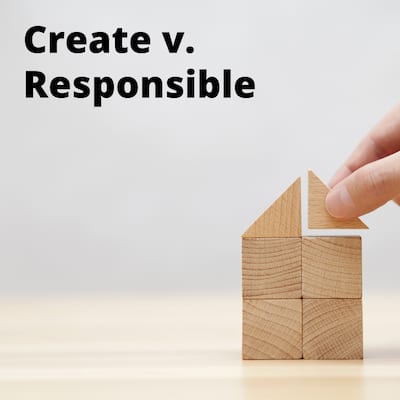 Note: This article was originally published November 20, 2011 and has been updated.
Note: This article was originally published November 20, 2011 and has been updated. Click here to
Click here to  The majority of the issues that I work on with my clients have something to do with the people in their lives.
The majority of the issues that I work on with my clients have something to do with the people in their lives. Tapping can be used to help manage the functions and systems of our bodies where our systems can often be over- or under-functioning.
Tapping can be used to help manage the functions and systems of our bodies where our systems can often be over- or under-functioning. 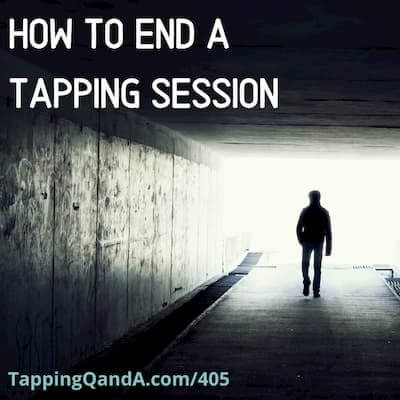 How we end a tapping session is sometimes more important than how we begin it. At the beginning it is most important that we simply start tapping. With each successive round of tapping, we gain clarity about the issue at hand and where we should focus our efforts.
How we end a tapping session is sometimes more important than how we begin it. At the beginning it is most important that we simply start tapping. With each successive round of tapping, we gain clarity about the issue at hand and where we should focus our efforts.  I have a confession to make. I hate Emotional Freedom Techniques.
I have a confession to make. I hate Emotional Freedom Techniques.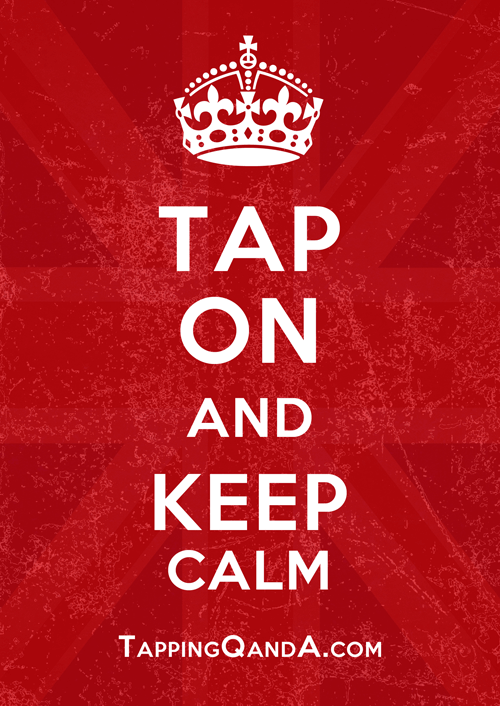
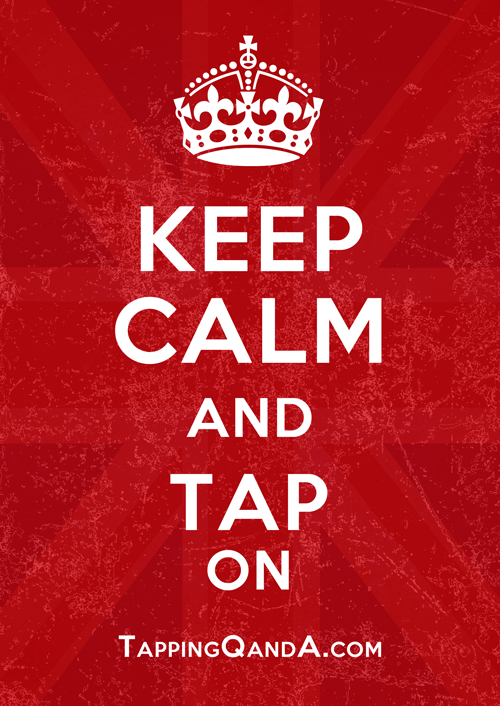
 I spent the Christmas holiday in my home state of Wyoming. The last night I was home my sister asked if I could share a way she could tap for a friend who was grappling with a lot of difficult changes in his life.
I spent the Christmas holiday in my home state of Wyoming. The last night I was home my sister asked if I could share a way she could tap for a friend who was grappling with a lot of difficult changes in his life.




 There is no question that Donald Trump’s public persona is one in which he thinks a great deal of about himself. I don’t think it is a bad thing.
There is no question that Donald Trump’s public persona is one in which he thinks a great deal of about himself. I don’t think it is a bad thing. 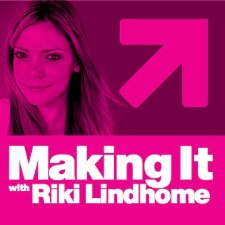
 I heard Dr. Phil interviewed once and he was talking about how an interviewer was badgering him about the fact that all he does is repeat common sense. His response was, “Thank you very much!”
I heard Dr. Phil interviewed once and he was talking about how an interviewer was badgering him about the fact that all he does is repeat common sense. His response was, “Thank you very much!”

